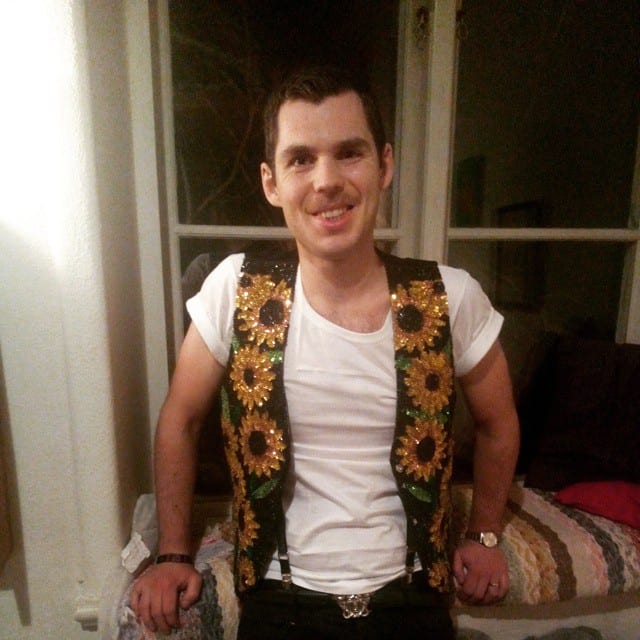Earlier this year Ben Baumberg Beiger wrote a post about alcohol and happiness, referring to a study conducted by himself and George MacKerron, and also a British cohort of people born in 1970.
Alcohol and happiness is a tricky question to assess, which Ben also points out.
Ben’s conclusion is that alcohol regulations should aim at reducing the “bad drinking” in order to reconcile – as he writes – the policies that “best balance alcohol’s pleasures against its harms.” His article and the discussion that ensued captured my interest.
Understanding alcohol and pleasure
To assess the question of happiness and alcohol, we first need to make the distinction between happiness and pleasure, and how pleasure can manifest itself. Luckily, Diyanath Samarasinghe has looked into this issue and has written about pleasure as a psychological phenomenon, which helps us to navigate the discussion of the relationship between alcohol and pleasure.
According to Diyanath, there are three kinds of pleasure:
- Natural pleasure
- Learned pleasure and
- Forced pleasure.
Where does alcohol fit in?
Well, let’s take a closer look.
The natural pleasure manifests itself as a direct response to a stimuli, sometimes also directly tied to our basic human needs. To eat when hungry, drink when thirsty or having an orgasm is to most people a shared experience of pleasure, which is equally distributed across most cultures. Even other actions as helping strangers or giving away money could have powerful effects on the contentment we feel even though that might not be grounded in physiological effects rather a product of emotional and psychological effects.
Then, there is learned pleasure. To differentiate it from natural pleasure, this is something that could vary greatly between individuals and cultures and takes time to fully appreciate. It can be everything from opera to hip hop, from fermented meats to raw food desserts, or even Christmas, Ramadan and other celebratory events which use symbols and rituals to make us feel good. My own favorite learned pleasure is to put on my golden-green sequin vest and wander down town, nothing beats that really!

The point is that the learned pleasure can exert the same powerful pleasurable effects as natural pleasures.
Finally, we have forced pleasure, which we take for granted even though it doesn’t give us much pleasure at all. You could even argue whether this should be called a pleasure in the first place. But if the subjective mantra is: “I like doing this, this is pleasurable,” we have no choice but to categorize it as a kind of pleasure.
It can manifest itself as going to operas or rock concerts just because all your friends do it; or trying out “fine” wines or liqueurs when you think the taste is anything but good; or going to exclusive parties and events where the people are dull and boring, but seen as something prestigious or having “good taste”.
Forced pleasure is the process of learning what is held in high esteem or gives good reputation among friends and family, alas the simple process of betraying yourself into having boring (but telling yourself it’s fun) experiences.
Alcohol and the three types of pleasure
We certainly know that alcohol doesn’t give us pleasure in a natural sense. People when blindfolded often give thumbs down to most types of drugs, including alcohol. Even alcoholics don’t appreciate the buzz of alcohol, though they change their mind afterwards and tell you it’s great.
I can imagine that the taste of alcoholic beverages feels quite pleasurable, after people have practiced and trained to like it. I am a big fan of beer myself. But since almost everyone finds the taste of alcohol revolting the first time they try, it seems obvious not to encourage the use of alcohol without losing a lot of potential moments of happiness.
But our current alcohol norm works very much to the effect of making alcohol a forced pleasure. My experience is that alcohol often is used as a forced kind pleasure to make people enjoy dreary parties or make you listen to your stepfathers boring jokes. I think most people would agree with me when I say that this is something we easily could be without.
A life of happiness and pleasure: what’s the role of alcohol?
To cover the topic of happiness research would take its time but I would like to highlight a Swedish philosopher, Bengt Brülde, who has a fruitful perspective on life quality and happiness. He emphatically states:
The meaning of life is not to be happy!”
Instead he refers to the triangle of happiness, ethics and meaningfulness. I hope to describe this relationship extensively in a future blog post but for now I would just like to introduce the idea that the quality of life (or happiness) is not measured with what you fill your life with. It is measured in what you can give and how you place yourself in the context of your life.
If we have this approach to happiness, the question of whether alcohol makes you happy or not seems obsolete, almost illogical.
The point to this argument is that the equation of happiness has many variables in it and it is important to assess every one of them. Pleasures, especially forced ones like alcohol, work as placebos for happiness.
With this is mind, I think the road to successful alcohol policies is really a straight forward one. As alcohol is one of the leading causes of preventable deaths, with a huge negative impact on both our mental and physical health, it has nothing to give us if we are seeking to live a long and healthy life where our ethics are aligned with both our happiness and our sense of meaningfulness.
—
For further reading
Study: Do cigarette taxes make smokers happier?